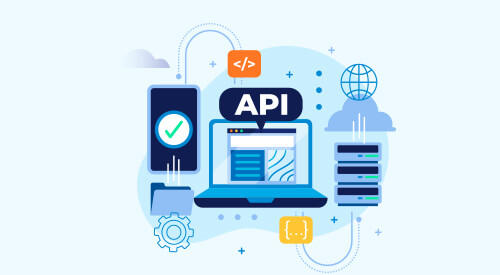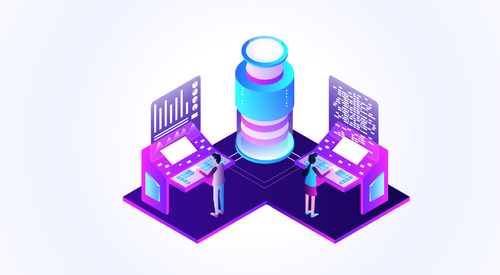

With the rapid growth in technology, businesses seeking to innovate and integrate new tools need to focus on Application Programming Interfaces (APIs). APIs serve as the building blocks of modern software, enabling different systems to communicate effectively. For businesses in Singapore, a tech-forward nation, implementing robust API lifecycle management solutions is essential to maintaining a competitive edge. In this blog, we will explore the essential components and best practices of API lifecycle management solutions Singapore. We’ll discuss how businesses in Singapore can leverage these practices to ensure their APIs are secure, scalable, and high-performing.
Singapore, known for its dynamic tech ecosystem, presents unique opportunities and challenges for businesses looking to leverage API management. Businesses here must ensure that their APIs are not only well-designed but also efficiently managed throughout their lifecycle. This involves a systematic approach to overseeing APIs from inception to retirement, ensuring they remain secure, scalable, and high-performing.
Optimize your API management – partner with Niveus
Understanding API Lifecycle Management Solutions Singapore
API life cycle management is a systematic approach to the API creation from design to development, implementation and lastly decommissioning. API lifecycle management aims at guaranteeing the sustainability of the APIs and making the overall API situation secure and capable of evolving as the business specifies. This is especially crucial in the current growing digital economy that Singapore is facing, whereby organizations need to adapt to the constantly evolving challenges in the market.
This is because to get the most from your company’s APIs, you need to know how to operate within the API lifecycle. Besides creating APIs, it is also about maintaining and evolving these APIs based on changing needs of the business. It is important to manage every phase of API and by doing so companies get a cumulative positive result and their APIs become a reliable source for delivering value consistently.
What is API Lifecycle Management?
API lifecycle management means the process that deals with API’s beginning from the conception, the planning stage, the development or implementation, the usage and monitoring to the final stage of APIs where it gets retired or deprecated. There are many steps in this process, each of which is significant when designing the API and making certain that it remains relevant to its users. The API’s architecture and features start with the design of an API, which is also the first stage of the life cycle. It then continues to the development and the testing stage where the API is created and checked for viability. However, once an API is deployed, it may need to be monitored for optimal performance, and this means maintenance. Last but not the least; an API is retired when not used, and people are migrated to versions available.
Key Components of API Lifecycle Management
The key components of API lifecycle management include:
- Design: Crucial for creating an API that is easy to use and maintain.
- Documentation: Helps developers understand how to use the API effectively.
- Security: Protects the API from threats and vulnerabilities.
- Testing: Ensures that the API works as expected.
- Deployment: Makes the API available to users.
- Monitoring: Tracks the API’s performance and usage.
- Versioning: Enables the introduction of new features without disrupting existing users.
Importance of API Lifecycle Management Solutions Singapore
Effective API lifecycle management is essential for businesses in Singapore looking to innovate and maintain a competitive edge. APIs are the backbone of modern software, enabling different systems to communicate and share data. Without proper lifecycle management, APIs can become outdated, insecure, or inefficient, leading to disruptions in service and lost opportunities for innovation. By managing the entire lifecycle of their APIs, businesses can ensure that their digital assets remain secure, scalable, and adaptable to changing business needs. This is particularly important in Singapore, where the fast-paced digital economy requires businesses to stay ahead of the curve to remain competitive.
API Lifecycle Management Tools: Enhancing Efficiency
Application programming interface management tools are a vital aspect of supporting the process and efficiency of the API lifecycle management process. These tools are intended to help with numerous aspects of the creation of an API, testing, deployment, and continuing maintenance. Businesses can save much time and effort with the help of the right tools to manage their APIs and shift the focus to further development.
Choosing appropriate API lifecycle management tools is crucial to attaining API reliability levels and operational value. API management tools have specific categories focused on specific phases of the API cycle that offer distinct features. This knowledge is helpful in identifying and improving your API management business strategy as per the following key tools.
Overview of Popular API Lifecycle Management Tools
There are several popular tools used to manage the API lifecycle, and all of them provide a specific set of features. Postman is an essential tool for API development and testing since it enables creators to design, test, and document APIs within a single interface. Swagger is another popular solution that has the feature of automatically creating API documentation and languages clients. Apigee, which is in Google Cloud Platform (GCP), has API management capabilities and can handle the full API lifecycle from creation to implementation and monitoring. As for other API solutions, Mulesoft and Kong are also effective tools designed to meet various business requirements.
Choosing the Right Tool for Your Business Needs
In choosing the lifecycle management of APIs there are some parameters that can be useful while making a decision. Those include scalability, integration capability and most importantly security compliance. This means the tool that you settle for should be one, which complements your business objectives and which is capable of delivering on the task that your APIs present. For instance, you are working on a project that involves handling a number of APIs, scattered across development, staging and production environments, so you may definitely need the versioning and deployment support which is available in Apigee. On the other hand in case you are aiming for development and testing fast then Postman may be used.
Best Practices in API Lifecycle Management
Adhering to API lifecycle management best practices is essential for maximizing the benefits of API management. By following best practices, businesses can ensure that their APIs are secure, scalable, and high-performing. Following are the API Lifecycle Management best practices:
- Design and Development: Ensure consistency in naming conventions and data structures, and provide clear and comprehensive documentation.
- Security: Implement strong authentication and authorization mechanisms, use encryption, and conduct regular security assessments and audits.
- Monitoring: Regularly track API performance, usage, and error rates to identify and address issues promptly.
- Versioning: Clearly communicate version changes and plan deprecation strategies carefully to minimize disruptions.
- Analytics: Use analytics to gain insights into user behavior and identify areas for improvement.
API Lifecycle Management Solutions Singapore
Due to Singapore’s specific positioning in the tech world, there are certain advantages and disadvantages that companies could face in terms of API life cycle. Given that the city-state has embraced innovation and digitalization, organizations must be prepared to manage and strengthen their APIs to support the digitalization agenda.
The Singapore market is saturated with numerous regulatory measures that companies have to adhere to in parallel with the challenges brought by the digitalisation drive. This means that the concept of API lifecycle management must be approached in the context of the Singaporean market. When implemented correctly, the right API lifecycle management solutions can help businesses based in Singapore build reliable, secure, and efficient APIs.
Leveraging GCP API Management in Singapore
Google Cloud Platform (GCP) provides API management solutions that can be implemented in Singapore’s context of the tech industry. GCP API management offers all the necessary tools for fulfilling the API life cycle, including creation, deployment, and monitoring. These tools are designed in a way to be complementary to current business systems so they can easily manage their APIs. In Singapore where consumers are demanding digital services, utilizing GCP API management can assist in API performance and guarantee APIs are adaptable and protected.
The Role of Niveus Solutions in API Lifecycle Management
Niveus Solutions currently serves as one of Singapore’s premier API lifecycle management solution providers, covering every step of the API management process. Familiar with the target market and constantly developing, the company Niveus Solutions assists enterprises in analyzing the problems in API management and making certain that their APIs are optimized and valuable.
Niveus Solutions’ approach to API lifecycle management is designed to meet the specific needs of Singaporean businesses, taking into account the unique challenges and opportunities of the local market. By providing tailored solutions that align with local regulatory requirements and market demands, Niveus Solutions helps businesses optimize their APIs for performance, scalability, and security.
How Niveus Solutions Stands Out in the Singapore Market
What sets Niveus Solutions apart from other API lifecycle management providers in Singapore is its deep understanding of the local market and its commitment to delivering tailored solutions. Niveus Solutions works closely with its clients to understand their specific needs and challenges, and then develops customized API lifecycle management strategies that align with their business goals. This customer-centric approach, combined with the company’s expertise and industry knowledge, makes Niveus Solutions a trusted partner for businesses in Singapore.
Conclusion: Elevating Your API Strategy with Niveus Solutions
In conclusion, effective API lifecycle management is essential for businesses looking to stay competitive in Singapore’s fast-paced digital economy. By implementing a robust API management strategy, businesses can ensure that their APIs are secure, scalable, and high-performing, enabling them to drive innovation and deliver better services to their customers. Niveus Solutions offers comprehensive API lifecycle management solutions tailored to the unique needs of Singaporean businesses. With a deep understanding of the local market and a commitment to delivering customer-centric solutions, Niveus Solutions is the ideal partner for businesses looking to elevate their API strategy and achieve their digital transformation goals. consider adopting shift left practices to enhance their development processes and achieve better outcomes.











